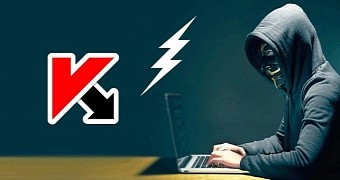The Lithuanian government has decided to ban security software developed by Moscow-based Kaspersky due to concerns the company might be involved in cyber espionage campaigns carried by Russia.
In an announcement this week, Lithuanian authorities announced that Kaspersky must be removed from computers operated by energy, finance, or transport departments, including those that are being used by private companies.
The government says the decision comes because Kaspersky is now considered “a potential threat to national security,” explaining that its software can only run on computers that aren’t working with sensitive data, with a permission to be granted by the company’s cybersecurity agency.
“Information from computers using the software can leak into countries where we don’t want it to end up,” Rytis Rainys, deputy director at the state cybersecurity agency, was quoted as saying by Reuters. “We drew on various sources for the conclusion, including information from our partners and intelligence sources.”
Also banned in the US and the UK
Kaspersky was recently banned by the US government as well, with President Donald Trump signing a bill that requires state departments to remove the antivirus as soon as possible.
Furthermore, the United Kingdom has also recommended against using Kaspersky software over concerns of possible cyber espionage, though in this case local authorities said they would be working with the Russian vendor on addressing the issue.
The security company once again denied in a statement any possible tie with Kremlin, explaining that the decision to ban its software was mostly made as a result of a “geopolitical fight.”
“Given that Kaspersky Lab does not have inappropriate ties with any government, it is disappointing that this decision by the Lithuanian Government has been made. Unfortunately, the company appears to be caught up in a geopolitical fight and this has resulted in allegations for which no credible evidence has been publicly presented,” Kaspersky said.

 14 DAY TRIAL //
14 DAY TRIAL //